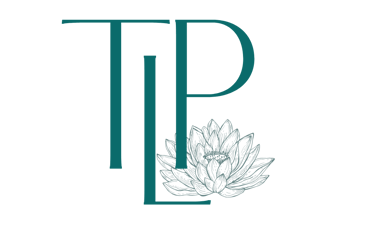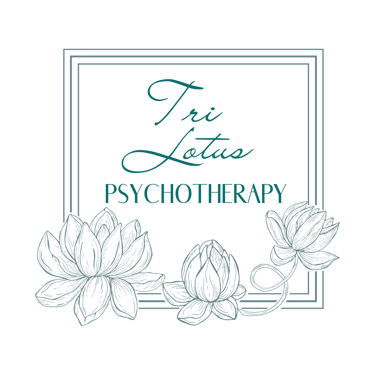NOW ACCEPTING NEW CLIENTS: In-Person in Calgary & Online across Alberta Book a Free 20min Introductory Call! CLIENT LOGIN
How to Say ‘No’: A Guide for People Pleasers
This blog unpacks the struggles of people-pleasing - why saying “no” feels so hard, how it leads to burnout and resentment, and why boundaries are essential for well-being. With a focus on motherhood, it offers insight and practical tips to help you break free from the pressure to be everything for everyone and start honouring your own needs.
Tri Lotus Psychotherapy
9/10/20254 min read


Learning how to say "no" can feel nearly impossible for people pleasers. If you’ve ever found yourself saying “yes” to requests even when you’re overwhelmed, exhausted, or simply don’t want to, you’re not alone. Setting healthy boundaries is a skill, and one that can transform your relationships and your own sense of self-worth.
What Exactly Is People-Pleasing?
People pleasing goes beyond being kind or helpful. It’s the habit of putting others’ needs above your own, often at the expense of your well-being. People pleasers may constantly agree to favours, avoid conflict at all costs, and feel guilty if they say no.
While the intention comes from wanting to care for others, it often leaves little space for self-care. Over time, this pattern can erode confidence, cause burnout, and create unbalanced relationships.
The Danger of Being a People Pleaser
The danger of being a people pleaser is that it trains you to abandon yourself. When you’re always saying yes, you risk:
Exhaustion and burnout: You can’t pour from an empty cup.
Resentment: Giving endlessly without reciprocity leads to frustration.
Loss of identity: Defining your worth by what you can do for others disconnects you from who you truly are.
Strained relationships: Even well-intentioned giving can backfire if you feel unappreciated or unseen.
Why It’s So Hard to Say “No”
For many people pleasers, the difficulty saying no is rooted in childhood experiences. If you had to be overly attuned to others’ needs to stay safe, whether emotionally or physically, you may have learned that keeping people happy was essential.
This belief can carry into adulthood:
Saying no may feel like disappointing someone—and disappointment may have once been unsafe.
Self-worth may feel tied to how much you give or how well you accommodate
Conflict can feel unbearable, as others’ negative responses reinforce feelings of being “not good enough.”
Saying no might feel unkind, even though it’s an act of honesty and respect.
These patterns can create deep anxiety, making “no” feel more like a threat than a healthy boundary.
Why Learning to Say “No” Is Important
Boundaries are not just about protecting your time—they’re about protecting your well-being. When you learn to say no:
You respect your time, energy, and needs as much as you respect others’.
You prevent burnout and give yourself space to show up fully in the commitments you choose.
You create healthier, more balanced relationships built on mutual care instead of silent resentment.
You teach your brain that saying no is not unsafe, the world won’t combust, and people often handle it better than you expect.
Avoiding “no” only increases anxiety, but practicing it builds resilience and self-trust.
People Pleasing in Motherhood
Motherhood has a way of magnifying people-pleasing tendencies. Not only do many moms feel pressure to say yes to their children’s every request, but they often carry the added weight of saying yes to family, friends, schools, workplaces, and community commitments. The invisible expectation to “do it all” can leave mothers stretched thin, always giving and rarely receiving.
With kids, people pleasing can look like always trying to keep the peace—never wanting them to be upset, rushing to fix every problem, or overcommitting to activities just to avoid disappointment. While the intention comes from love, it can accidentally teach children that Mom’s needs don’t matter, or that love means self-sacrifice.
Outside of the home, moms may find themselves saying yes to hosting events, volunteering at school, or picking up extra work—even when they’re already overwhelmed. Saying no can feel selfish or like they’re letting others down. But the reality is that trying to be everything for everyone usually leaves mothers exhausted, resentful, and disconnected from their own sense of identity.
Learning to set boundaries as a mom is not only an act of self-care, it’s a gift to your children. When you model healthy limits, your kids learn that it’s okay to say no, that their worth isn’t defined by productivity, and that relationships thrive when everyone’s needs are respected.
How to Say No: Tips for People Pleasers
If saying “no” feels impossible, here are some simple strategies to begin with:
Validate their need and offer empathy
Example: “I hear that you need help” or "It's fair that you're overwhelmed."
“I know you really want another snack right now, and it looks yummy. But we’re about to have dinner, so we’ll wait until then.”
Say no kindly but firmly
Example: “I can’t help this time, but I hope it works out.”
Give a clear boundary with a choice: “No, we can’t go to the park right now, but you can choose if we read a book or do some colouring instead.”
Give a redirect: “I hear that you want more screen time. The answer is no for today, but we can plan some extra tomorrow.”
When you just need a second: “No, I can’t play with you this second, because I’m making dinner. But once I’m done, I’d love to play a game with you.”
Use empathic assertion (empathy first, then decline)
Example: “It sounds like you have a lot on your plate right now. I’m not able to help this time, but I hope things slow down for you soon.”
“I get that you’re upset because you really wanted that toy. It’s hard to hear no, and I understand you’re disappointed. But we’re not buying it today.”
Remind yourself: Saying no to others is saying yes to YOU.
Protecting your energy isn’t selfish, it’s essential.
You can't show up as your "best self" for the people in your life if you're not caring for yourself.
Saying "no" to your children in certain occasions is modelling healthy boundaries. It helps them learn to cope with disappointment
Remember: boundary-setting is a skill, not a personality trait. You can learn it, practice it, and strengthen it over time.
If you recognize yourself in these patterns, know that you don’t have to change overnight. Start small, practice compassionate “no’s,” and remind yourself that you’re not rejecting people, you’re honouring yourself.
If you’re struggling with people-pleasing patterns and want support in building healthy boundaries, reaching out to a Calgary psychologist or therapist can help. Therapy provides tools to unlearn old patterns, heal the roots of people pleasing, and build confidence in your ability to say no without guilt.
Tri Lotus Psychotherapy offers therapy for People Pleasing tendencies, burnout, stress management, postpartum struggles and more. Reach out to book a complimentary 20 minute introductory call with one of our Calgary Therapists to see how we can help!
Let's Connect
Please fill out the form to request an initial appointment
or complimentary introductory call
Contact
hello@trilotustherapy.com
Clinic Hours
Monday: 5:00pm to 8:00pm
Tuesday: 1:00pm to 8:00pm
Wednesday: 8:00am to 8:00pm
Thursday: 8:00am to 8:00pm
Friday: 11:30am to 4:30pm
Saturday: 9:00am to 3:00pm
Copyright © 2025 by Tri Lotus Psychotherapy - All Rights Reserved


Land Acknowledgment: I gratefully acknowledge and honour that where I live, work and play is within the traditional territories of the people of the Treaty 7 region in Southern Alberta, which includes the Blackfoot Confederacy (comprising the Siksika, Piikani, and Kainai First Nations) as well as the Tsuut’ina First Nation, and the Stoney Nakoda (including the Chiniki, Bearspaw, and Wesley First Nations); and Métis Nation of Alberta, Region 3. The traditional Blackfoot name of this place is “Mohkinstsis”, which is also known now as Calgary.

